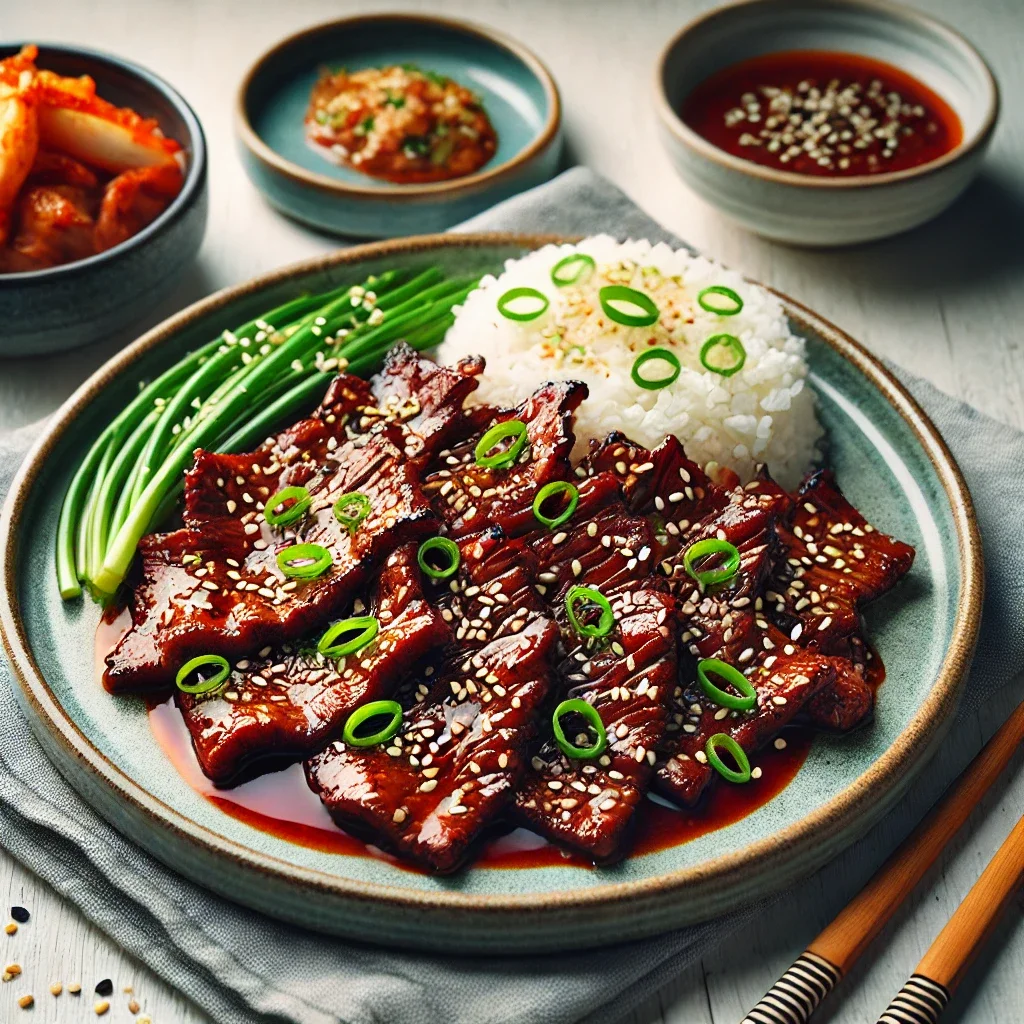Earlier this year, BIBIBOP released our take on Bulgogi, Korean BBQ Beef. But do you know the history boasting rich and diverse culinary traditions that have taken the world by storm? Let us give you a quick history lesson on what makes Korean cuisine magical.
Often described as “fire meat” due to its cooking method, Bulgogi is a delectable Korean barbecue dish that has captured food enthusiasts’ hearts and taste buds worldwide.
Bulgogi’s roots can be traced back centuries to the Korean peninsula. The dish’s name, “Bulgogi,” is a combination of two Korean words: “bul” (fire) and “gogi” (meat). This name aptly reflects the traditional cooking method of Bulgogi, which involves grilling marinated slices of beef over an open flame.

What is the history of Korean BBQ and Bulgogi?
Historically, Bulgogi was enjoyed by Korean nobility and aristocrats during the Joseon Dynasty (1392-1910). It symbolized luxury and was often prepared during special occasions and feasts. Over time, Bulgogi’s popularity spread beyond the royal courts, becoming a beloved staple in Korean households and, eventually, across the globe.
Where Bulgogi is From and Origins behind Korean BBQ Beef
The Flavor Profile
At its core, Bulgogi is all about the balance of flavors. The marinated meat is tender, juicy, and packed with a delightful blend of sweet, savory, and umami notes. The key to Bulgogi’s flavor profile lies in its marinade, which typically includes soy sauce, sugar, garlic, ginger, sesame oil, and sometimes pear or apple for a touch of natural sweetness. These ingredients work harmoniously to create a mouthwatering, savory, and sweet sensation.
How is Bulgogi Prepared
To prepare Bulgogi, thinly sliced beef or other meats (such as pork or chicken) are marinated in a flavorful sauce for a few hours or overnight. This allows the meat to absorb the rich flavors of the marinade. Once marinated, the meat is grilled over an open flame or stovetop griddle, creating caramelization and that irresistible smoky aroma.
One unique aspect of Bulgogi is the “ssam” style of eating, where the grilled meat is wrapped in lettuce or perilla leaves, often accompanied by diverse condiments and pickled vegetables. This method of serving enhances the dish’s interactive and communal dining experience, making it a favorite choice for gatherings and celebrations.
Global Popularity
Bulgogi’s global popularity has soared over the past few decades, thanks partly to the worldwide fascination with Korean culture, including K-pop and Korean dramas. Korean barbecue restaurants have sprung up in major cities across the globe, offering Bulgogi and other Korean BBQ delights. Its unique combination of flavors, interactive dining experience, and the fun of grilling at the table have made it a hit among people of all backgrounds.
Not only is Bulgogi beloved in its traditional form, but it has also inspired creative variations and fusion dishes. From Bulgogi tacos to Bulgogi burgers, the versatility of this Korean BBQ marvel knows no bounds.
Bulgogi is more than just a delicious dish; it’s a culinary journey that offers a taste of Korean culture and tradition. Its rich history, harmonious flavors, and interactive dining experience make it stand out in global cuisine. Whether you’re a seasoned foodie or a curious explorer of international flavors, Bulgogi is a must-try that will tantalize your taste buds and leave you craving more. So, the next time you search for a culinary adventure, consider embarking on a Bulgogi experience by adding Korean BBQ Beef to your bowl—you won’t be disappointed!
